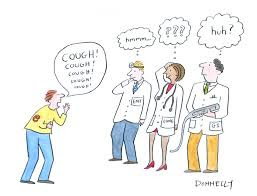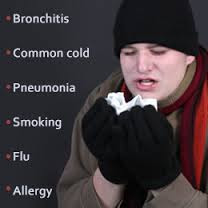Chronic Cough Definition
What are the different types of cough?
Allergists have particular expertise in allergic rhinitis (or hay fever) and sinus infections, which may contribute to postnasal drainage, a common cause of chronic cough. Allergists are also experts at diagnosing and treating asthma, which may be present in 25% of patients with chronic cough. Cough from asthma may be associated with wheeze, shortness of breath or chest tightness and may be worsened by colds, exercise, smoke exposure and laughter, among other things. In addition, allergists are experienced in dealing with GERD, or heartburn, which may produce cough.
When to see an allergist:
• If you have a cough that lasts more than eight weeks.
• If your cough is associated with symptoms of asthma.
• If your cough is associated with nasal symptoms or tobacco use.
• If your cough is severe and affecting your quality of life.
The differential diagnosis of chronic cough in children includes subacute and chronic infections (eg, bacterial bronchitis, pertussis, mycoplasma, and tuberculosis), foreign body aspiration, and cough-dominant asthma Gastroesophageal reflux, upper airway cough syndrome (formerly known as postnasal drip syndrome), and sinusitis are sometimes implicated because of associations with chronic cough in adults, but their role in causing chronic cough in children is controversial. Less common disorders must be excluded if the cough is unusually severe and/or frequent, or when there is evidence of failure to thrive, growth retardation, purulent sputum, exertional dyspnea, hypoxemia, chest pain, or hemoptysis. (See "Causes of chronic cough in children".)









